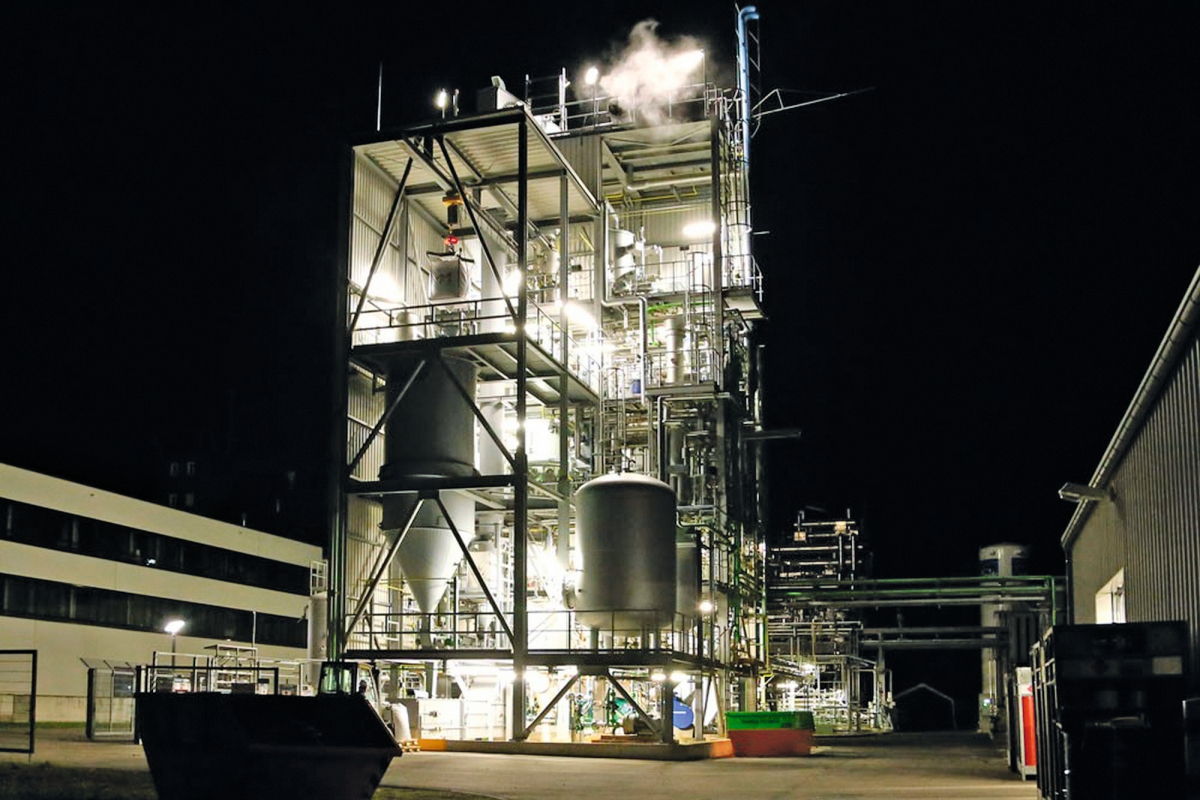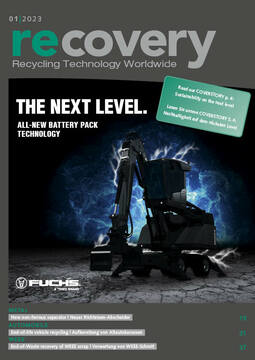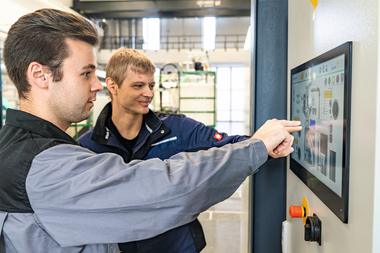Fraunhofer IKTS expands its Freiberg site
As of January 1, 2023, Fraunhofer IKTS has integrated the Freiberg research group Circular Carbon Technologies KKT. By doing so, the institute aims to leverage further synergies in electrolysis, hydrogen and power-to-X technologies and to develop sustainable carbon sources for circular economy.
The research group Circular Carbon Technologies KKT was founded in October 2017 as a branch of Fraunhofer IMWS. The research goals of KKT focus on the efficient, resource-saving and climate-neutral use of carbon carriers. This development work is carried out in close cooperation with the TU Bergakademie Freiberg. To this end, the KKT research group received start-up funding from the Saxon State Ministry of Science, Culture and Tourism (SMWK) in the amount of 4.6 million €, which was used to purchase comprehensive equipment, among other things. Currently, 20 researchers are working at the KKT in Freiberg. The KKT research group of the Fraunhofer Institute for Ceramic Technologies and Systems IKTS optimizes chemical recycling processes and tests them on an industrial scale.
 The research group Circular Carbon Technologies KKT of the Fraunhofer Institute for Ceramic Technologies and Systems IKTS in Freiberg optimizes chemical recycling processes and tests them on an industrial scale
The research group Circular Carbon Technologies KKT of the Fraunhofer Institute for Ceramic Technologies and Systems IKTS in Freiberg optimizes chemical recycling processes and tests them on an industrial scale
© Inst. f. Energieverfahrenstechnik und Chemieingenieurwesen, TUBAF
Carbon is a key raw material for countless products in our daily lives. Up to now, industry has largely used fossil raw material sources such as crude oil, natural gas or coal. Large quantities of CO2 are released both during the production of these raw materials and when they are burned at the product‘s end of life. Germany alone incinerates around 47 million metric tons of this carbon-containing waste each year in thermal waste treatment and combustion plants. In the future, up to 100 % of this waste could be recycled and used in new products through precisely coordinated process combinations in chemical recycling. Waste will thus become a valuable source of raw materials, for example for feedstocks in the chemical industry.
At the new site in Freiberg, chemical recycling processes such as pyrolysis or gasification are optimized and tested on an industrial scale. Plastics that cannot be further recycled mechanically, biomasses or mixed fossil waste are broken down into smaller molecules so that they can be reused as synthesis gases, monomers or other intermediate products in the chemical industry. For this purpose, the researchers at the site operate a pyrolysis platform and – in cooperation with the TU Bergakademie Freiberg – gasification facilities to investigate various issues: which waste fractions can be converted into which kinds of basic materials? How must the processes be run in order to avoid corrosion or caking or to achieve a certain purity of the products? And finally, there is also the question of economic efficiency. In this way, various technologies can be adapted, evaluated and transferred into customer-specific solutions for closing carbon cycles for industrial partners.
These competencies will be expanded in the future. Prof. Martin Gräbner, head of the new site in Freiberg and chair of Energy Process Engineering and Chemical Engineering at the TU Bergakademie Freiberg, explains: “In the future, we want to realize the use of carbon sources in a way that is as low in CO2-emission, as efficient and resource-conserving as possible. The basis for this must be renewably generated electricity, which is incorporated, for example, as green hydrogen via special synthesis processes. This is where we optimally tie in with the competencies at IKTS.” If the recycling processes mentioned are combined with electrochemical conversion processes such as high-temperature electrolysis or synthesis processes such as Fischer-Tropsch synthesis, higher-value products such as synthetic kerosene can be produced on the one hand and high efficiencies can be achieved on the other.
Only the coupling of material, energy and heat flows combined leads to process concepts that offer significant added value compared to previous approaches. Prof. Alexander Michaelis, Institute Director of Fraunhofer IKTS, is pleased about the new addition in Freiberg and describes the associated potential: “IKTS has many years of experience with technologies for hydrogen production and utilization. Here, high-temperature electrolysis and Fischer-Tropsch synthesis are absolute core technologies. With the expanded expertise in the field of circular carbon technologies, we are now in a position to provide new raw material and energy resources for a green industry.“


